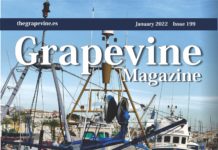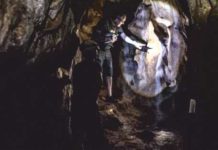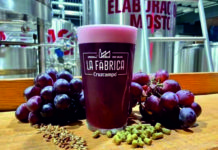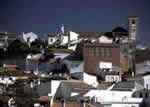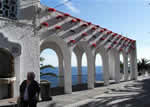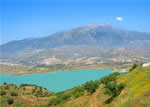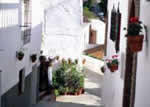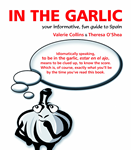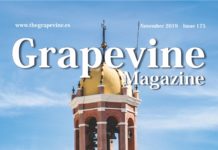
Extracts from the best selling book "In the Garlic" by Valerie Collins and Theresa O'Shea Stay a while in Spain, and beyond the sunshine, fiestas, Rioja and laidbackness you may find yourself drifting in an uncharted ocean of unwritten laws, linguistic minefields and mysterious quirks. You need to be In the Garlic – en el ajo – in the know.
Quedar The basic meaning is to stay or remain. We struggled for years with citas (dates and certain kinds of appointments) and horas (appointments but not dates) and assorted reuniones and encuentros until it clicked, after hearing it used thousands of times, that quedar also means “to arrange to meet”. For example, “He quedado a las 9 con Pepe” means “I'm meeting Pepe at 9”. “He quedado” (I'm meeting someone, or possibly something) is suitably vague and secretive and is therefore to be heard a great deal in Spanish TV soaps (followed by slamming door), provoking fits of suspicion and jealousy on screen and edge-of-seat suspense in the viewer.
Radares Speed cameras. Rapidly springing up all all over the place, as part of the government campaign to reduce the number of accidents on the road. If you're blind and miss the giant signs warning of cameras ahead, you'll soon realise you should slow down when suddenly you're leading all the other traffic.
Rodríguez When school is out from late-June to mid-September and the towns and cities roast, traditionally wives and kids are evacuated to beach apartments, country villas, the in-laws' pueblo, while the men stay home to, er, work. This macho staying home alone is known as quedarse de rodríguez. Why rodríguez? So far we have been unable to find out. But his days may be numbered. Unfortunately for Spanish men, as more and more women work and holidays get shorter in line with northern Europe, the bliss of staying in town en plan rodríguez is increasingly confined to just the odd weekend.
RR Unlike the other two digraphs, ll and ch, rr (pronounced erre) is not considered a letter in its own right. Like the r in the initial position (rosa, roca, receta), it is pronounced with a rolling trill. That's the theory at any rate. In the early years, Theresa would pound the streets, a woman possessed, ranting her “erres” over and over again, like a growling dog with a speech impediment. Perro, carretera, río, roca, arroz — she ruined them all. She still can't trill to order, but ever so occasionally she gets all excited when a perfectly rolled “erre” slips out unbidden. To avoid sounding like a lisping English person (the Scottish have no problems and neither does Valerie), put the flap of your tongue against the roof of your mouth, think of cats purring, and hope for the best. Should you manage to get the hang of trilling, you can drive yourself crazy with this trabalenguas, or tongue twister:
Erre con erre cigarro
Erre con erre barril
Rápido corren los autos
Por la vía del ferrocarril
Rollo Drag, bore, pain. ¡Qué rollo! What a drag. Quintessential expression for teenagers and moaners everywhere. Something or someone that makes you feel uneasy or gives you the creeps is said to have mal rollo (bad vibes). Likewise, if someone has buen rollo, they give off good vibrations.
In the Garlic: Your Informative, Fun Guide to Spain is published by Santana and is available at all good book shops (ISBN 13:978-84-89954-59-5)
©Valerie Collins and Theresa O'Shea 2008



